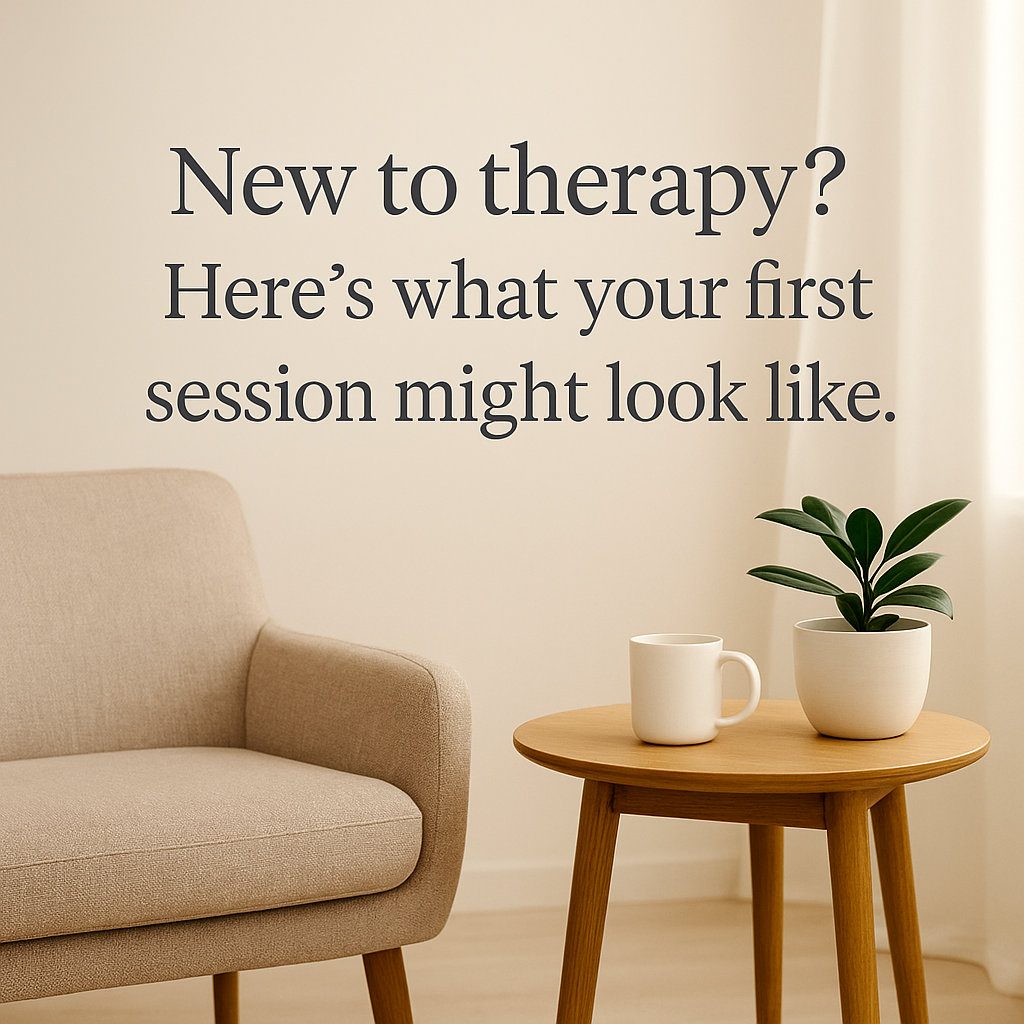What to Expect in Your First Therapy Session (And How to Make the Most of it)
Starting therapy—whether for the first time or with a new provider—can bring up a mix of emotions. Maybe you're excited, nervous, hopeful, or unsure. All of that is completely normal. We want to help make your first step feel a little less intimidating by walking you through what to expect and how to prepare. Whether you’re brand new to therapy or returning after a break, this post is for you.
Before Your First Session: How to Prepare
You don’t need to show up with your whole life story ready to go. Many people come to their first session not entirely sure where to begin, and that’s okay. Here are a few things you can do to prepare (if you feel up to it):
Reflect on what brought you to therapy. Is there something you're struggling with? Are you looking for support during a life transition? Maybe you're not even sure what’s wrong, but you know you don’t feel like yourself.
Write down a few goals or questions. What are you hoping to get out of therapy? Even something as simple as “I want to feel less anxious” or “I want to understand myself better” is a great place to start.
Give yourself grace. You don’t need to be polished or put together. Come as you are—that’s more than enough.
What Happens in a First Therapy Session?
The first session is all about getting to know each other. Your therapist will ask you questions to better understand what’s bringing you in and what your hopes are. It’s also a chance for you to get to know them—because the therapeutic relationship is a two-way street.
Here’s what you can generally expect:
Talking through your current concerns and what’s been going on in your life
A review of your intake form or history (if applicable)
A discussion of what therapy might look like going forward
Time to ask any questions you have
A collaborative start to building a treatment plan
It’s completely okay if you feel a little awkward at first or don’t know where to start. Many people feel that way, especially when opening up to someone new. Therapy is a process, not a performance.
Questions to Ask Your Therapist
You deserve to feel safe, respected, and understood. These questions can help you get a sense of whether your therapist might be a good fit:
What’s your approach to therapy?
Have you worked with people who’ve had similar concerns as mine?
How do you usually structure sessions?
What can I expect from therapy with you?
If You’ve Been to Therapy Before…
Coming back to therapy with a new provider might feel familiar—but also different. Every therapist brings their own style, training, and personality to the work. If something didn’t work for you in the past, that doesn’t mean therapy isn’t for you—it just means you haven’t found the right fit yet.
That said, even with the right therapist, it might take a few sessions to feel comfortable. We encourage you to give it at least 3–4 sessions before deciding whether the fit feels right. Building trust takes time, and that’s okay.
What to Expect in Ongoing Sessions
Therapy isn’t just about talking—it’s about growing, healing, and understanding yourself more deeply. In upcoming sessions, you might:
Explore patterns in your thoughts, emotions, and relationships
Learn new coping strategies and tools
Gain insight into the roots of certain struggles
Set goals and track progress
Work through difficult memories, emotions, or decisions
You don’t need to have all the answers. You just need to be open to the process.
How to Show Up for Therapy
The most important thing you can bring to therapy is your authentic self. That might look different each week—sometimes you’ll come in energized, other times you might feel shut down, tired, or unsure. All of that belongs in therapy.
To get the most out of your sessions, try to:
Be honest, even when it feels uncomfortable
Bring in what's on your mind that day, even if it feels small
Take time after sessions to reflect or jot down thoughts
Be patient with the process—and with yourself
Final Thoughts: You’re Not Alone
Starting therapy is a brave step. It’s okay to feel unsure, and it’s okay to not know if it will “work” right away. Trust that by showing up, you’re already doing the hard work of caring for your mental health.
We’re here to walk with you—one session at a time


